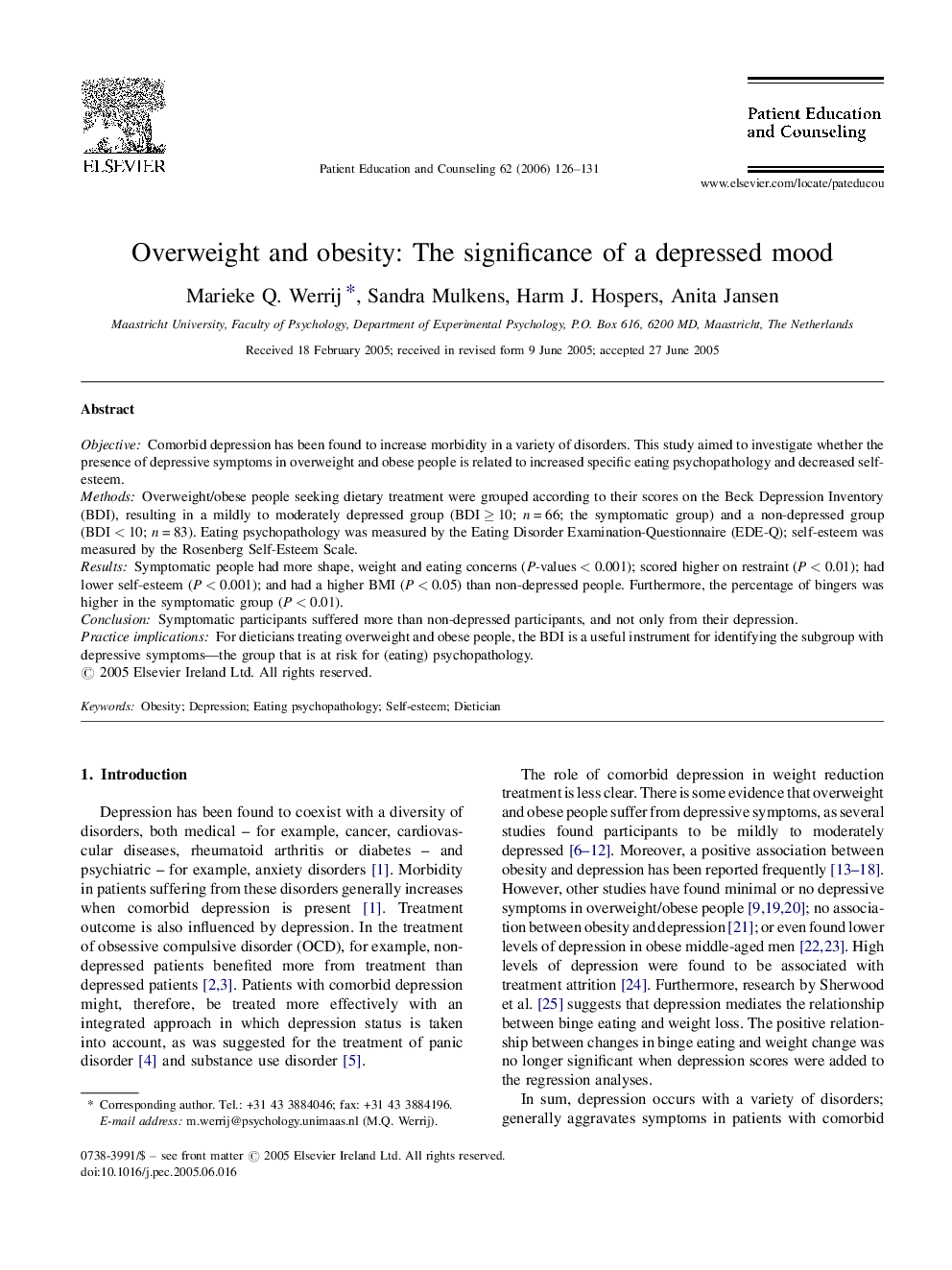| Article ID | Journal | Published Year | Pages | File Type |
|---|---|---|---|---|
| 3816116 | Patient Education and Counseling | 2006 | 6 Pages |
ObjectiveComorbid depression has been found to increase morbidity in a variety of disorders. This study aimed to investigate whether the presence of depressive symptoms in overweight and obese people is related to increased specific eating psychopathology and decreased self-esteem.MethodsOverweight/obese people seeking dietary treatment were grouped according to their scores on the Beck Depression Inventory (BDI), resulting in a mildly to moderately depressed group (BDI ≥ 10; n = 66; the symptomatic group) and a non-depressed group (BDI < 10; n = 83). Eating psychopathology was measured by the Eating Disorder Examination-Questionnaire (EDE-Q); self-esteem was measured by the Rosenberg Self-Esteem Scale.ResultsSymptomatic people had more shape, weight and eating concerns (P-values < 0.001); scored higher on restraint (P < 0.01); had lower self-esteem (P < 0.001); and had a higher BMI (P < 0.05) than non-depressed people. Furthermore, the percentage of bingers was higher in the symptomatic group (P < 0.01).ConclusionSymptomatic participants suffered more than non-depressed participants, and not only from their depression.Practice implicationsFor dieticians treating overweight and obese people, the BDI is a useful instrument for identifying the subgroup with depressive symptoms—the group that is at risk for (eating) psychopathology.
